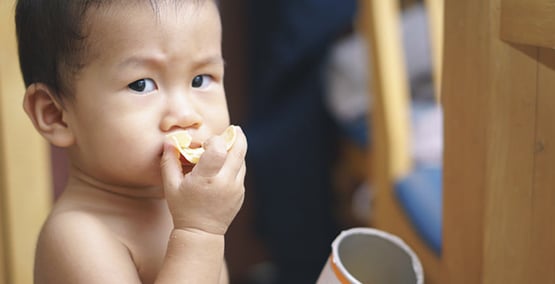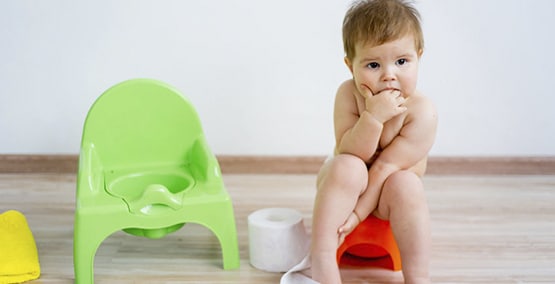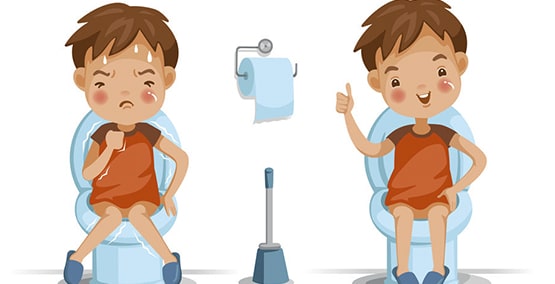
What causes constipation?
Why you or your child are always backed-up
-
Young, old, or in between, constipation clogs the colon downstream. It can also clog the toilet when your child manages to finally pass a week's worth of stool.
What exactly is constipation?
It's not such a silly question. Constipation is when someone has trouble passing hard stools (poops or bowel movements). They usually aren't "regular," meaning they go less than 3 times a week (babies are different) . Stools usually become hard and compacted in someone's lower intestine (the colon) when they sit there for a while, with the water being pulled out and absorbed back into the body. That's what causes hard pebbles or large toilet cloggers when bowel movements do not occur frequently (sometimes only once weekly, or longer!).
Symptoms of constipation include:
- Abdominal pain and cramping
- Nausea
- Lack of appetite
- Lethargy
- Liquid seeping from the rectum (the bum) –called encopresis
Diet and Fluids
Constipation usually reflects poor diet choices. If your child eats a lot of dairy or carb-heavy meals and snacks without balancing them with enough fruits and vegetables, he or she may not be getting enough fiber in the diet. Fiber is found in healthy carbohydrate sources and fruits and vegetables.
That's because the fiber holds fluid in the intestine–and that's what softens poops and smoothes the intestinal motion. If your child's fiber needs are being met, then the constipation could be due to lack of fluids in his or her diet.
Stool Withholding
Another cause of constipation is holding in the urge to poop. Kids can fall into the habit of holding back their stools due to preoccupation with their current activity (like playing outside) or out of fear (often from a painful passing experience). Likewise, adults may also hold back their stools due to bathroom stigma or not making/ having the time to go (like when in a meeting or driving).
Pain at the child's bottom as the stool pushes down makes that child want to hold back even more–and a negative cycle begins. He might be trying to push, but his body starts resisting (just like the reflex when you pull your hand away when you touch a hot oven); so the stool sits inside longer, gets harder; and his body tenses up more and resists with even greater effort.
The child might have tummy pain or be lethargic and he may not eat as well, which could lessen the fluids and fiber the colon needs to soften the stool. If the stool is hard enough, whatever is coming downstream can seep around the impacted stool and come out, irritating the child's skin and embarrassing the child at school.
How to Avoid Constipation
For the occasional episodes of constipation, make sure to get enough fiber in your diet by eating a variety of fruits, vegetables, and whole grains. Also, make sure that there is adequate fluid intake to accompany the foods in your diet. Lastly avoid holding back the urge to poop and make sure you are relaxed for easy passing.
However if you or your child experiences chronic constipation (continued infrequent bowel movement, pain, rectal leaking, inability to pass stools 3 times a week) we recommend talking to your doctor to evaluate the problem and to begin a program to treat the chronic constipation.




